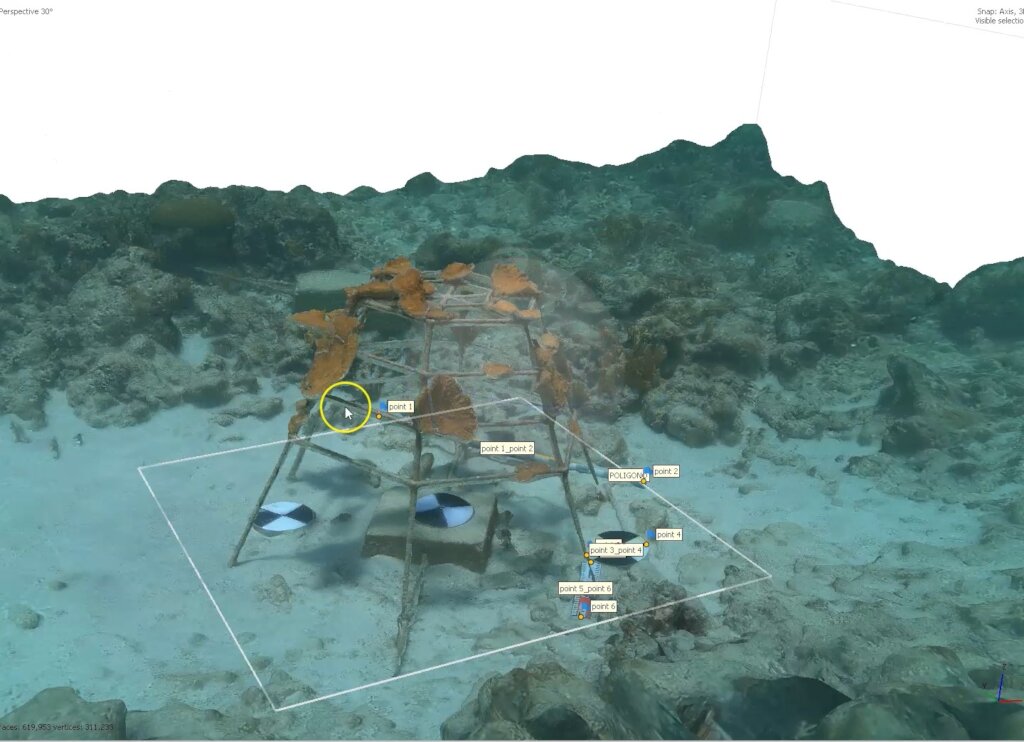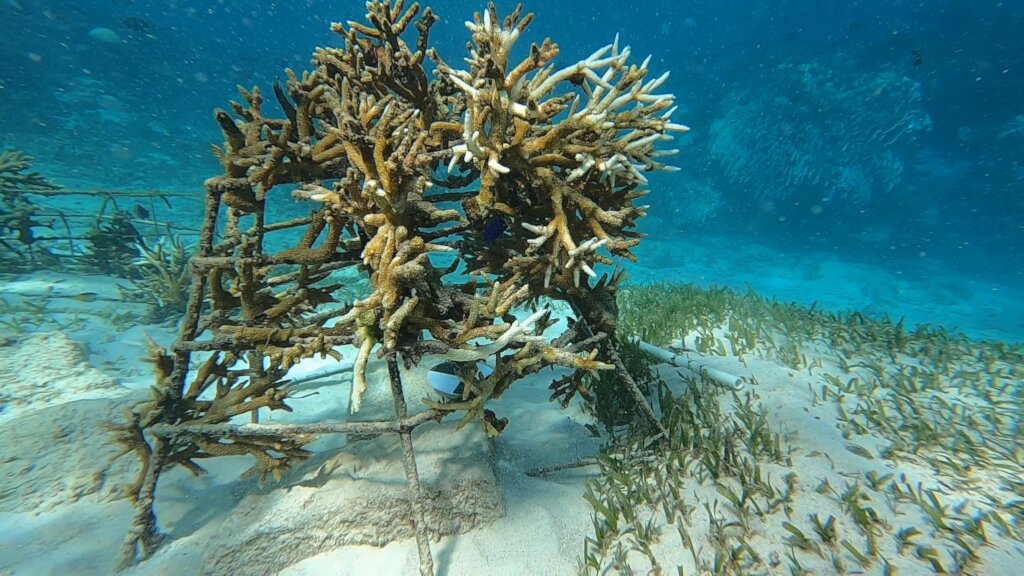By Rebecca Garcia Camps | Science Coordinator
Following NOAA's predictions, we knew we would face a bleaching event in 2023. We prepared by demarcating areas on the reef to monitor colonies and assessing our underwater nurseries. We will continue monitoring throughout 2024, as temperatures in April remain high and are expected to rise further. Nevertheless, thanks to these investigations, we have gained a better understanding of how these bleaching events are impacting wild coral colonies in the reef and fragments in the nursery. These findings enable us to mitigate and find solutions to this problem.
For the wild colonies, we selected three reefs. Within these reefs, we demarcated three 25m² plots to monitor biannually. By creating 3D models, we can identify which species are being affected. Since we began monitoring in July, sponges and hydrocorals have been the first to bleach. Corals such as Orbicella showed more signs of stress in January 2024, with a bleaching rate of 33%. Similarly, in our underwater nurseries, only 20% of Acropora cervicornis survived and our Acropora palmata did not bleach. We are now focusing on these resilient species to continue fighting towards restoration.
By Rebecca Garcia | Science Coordinator
By Rebecca Garcia | Scientific Coordinator
Project reports on GlobalGiving are posted directly to globalgiving.org by Project Leaders as they are completed, generally every 3-4 months. To protect the integrity of these documents, GlobalGiving does not alter them; therefore you may find some language or formatting issues.
If you donate to this project or have donated to this project, you can receive an email when this project posts a report. You can also subscribe for reports without donating.
Support this important cause by creating a personalized fundraising page.
Start a Fundraiser
